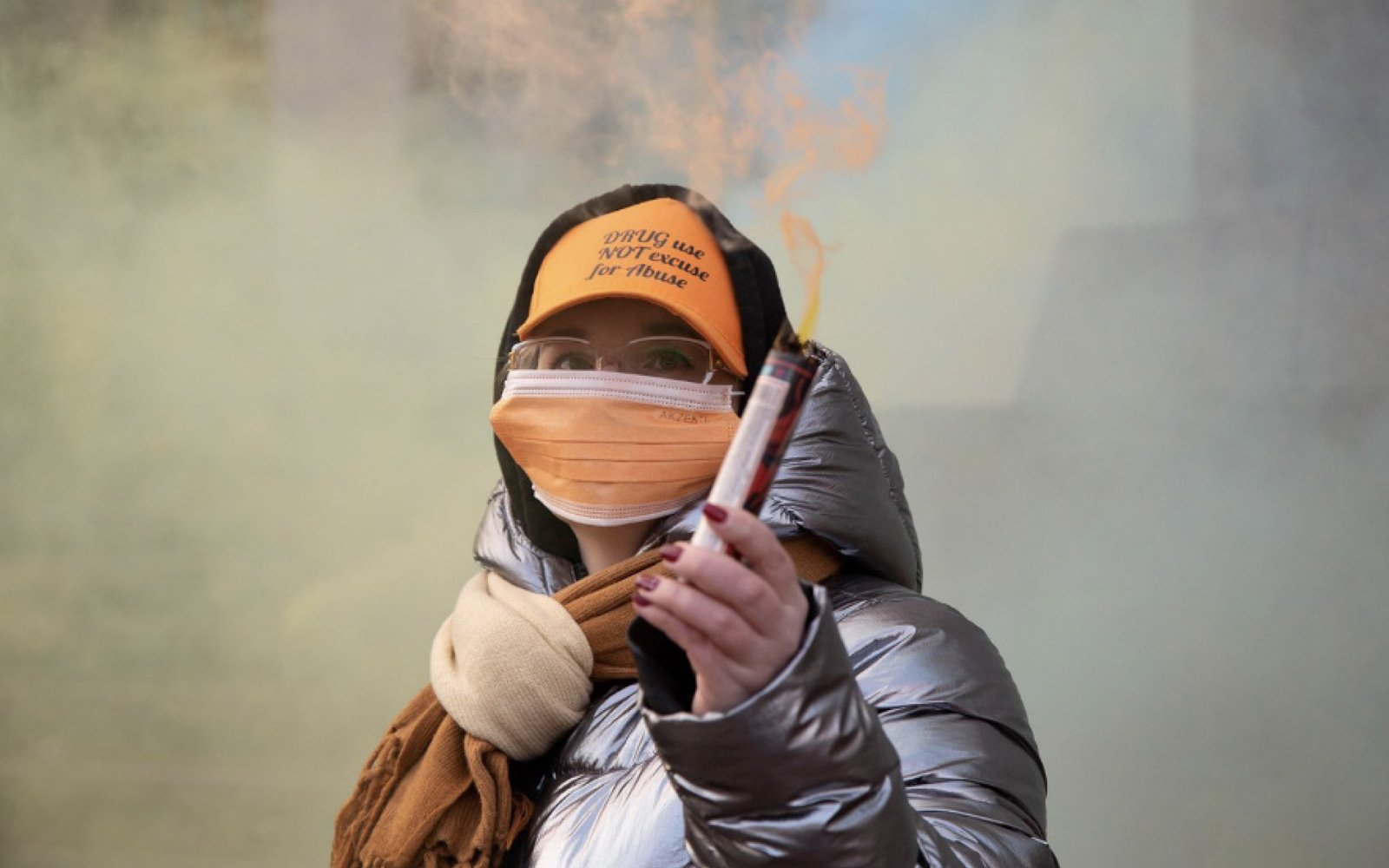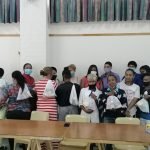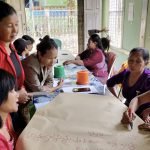Could you please introduce yourself and explain how you came to join Club Eney?
Hello, my name is Velta Parkhomenko. Currently I am the Project Manager, and Chair of Club Eney, a Ukraine based Harm Reduction NGO. I am also Vice Chair of the Women and Harm Reduction International Network (WHRIN), an activist with the community of women who use drugs, a member of All-Ukrainian Union of People with Drug Addiction, the Country Key Populations Platform and the Eurasian Network of People who use Drugs. I have been involved in harm reduction for 16 years. I first came to the Club Eney as a client, then later I was employed as a social worker and two years ago I became the head of the organization. Club Eney’s main functions include project management; communication with donors; building partnerships with government agencies and other NGOs and advocacy for the rights of people who use drugs at the national and local levels – with a special focus on women.
How does Club Eney work with women who use drugs?
Beginning in 2000, Club Eney implements harm reduction strategies in Ukraine. We involve women with lived experience of drug use as peer outreach workers to interact with women clients. Women also work as peer consultants in the organization. Club Eney strives to implement innovative approaches that are women oriented in focus not only with WUD but also for other service users who include other people who use drugs, sex workers, internally displaced women and veterans of anti terrorist operations. While implementing harm reduction projects, Club Eney identified a high prevalence of Gender Based Violence (GBV) and the need for GBV prevention services for WUD and sex workers. In 2018 we began providing gender sensitive and non-discriminative GBV prevention services for women from our target populations who have experienced violence. Club Eney was funded by the International Renaissance Foundation for the “Implementation of a Comprehensive Approach by the Communities with Problems of Violence Against Women Who Use Drugs’ project. Through this project, Club Eney was able to pilot screening, brief intervention and referral to the treatment tool WINGS/Women Initiating New Goals of Safety among WUD and sex workers in Kyiv. During 2019 we conducted WINGS research which confirmed a very high prevalence of GBV among sex workers and WUD as well as serious gaps in services for these women. During 2020 we provided WINGS to over 800 GBV survivors across 8 regions of Ukraine.
What are the key issues facing women who use drugs in Ukraine?
The COVID-19 pandemic has created particular risks for the WUD community. During 2021, many long-term Ukraine donors, including the International Renaissance Foundation, cut funding for GBV and HIV prevention activities. Most new grant opportunities switched focus to COVID-19. The Ukrainian government likewise focused on COVID-19 at the expense of other services, including HIV prevention and other healthcare services for our clients. For example, during 2019 the cost of hygiene kits and gynaecological consultations were subsidised by the government, however, in 2020 these both ceased.
Similarly, the government and donors reduced funding for condom distribution programs and GBV prevention services. As well as intensifying competition in an already resource constrained donor environment, this decreased funding for GBV and HIV programs has resulted in a larger service gap than before. The COVID crisis in Ukraine has been exacerbated by the rapid increase in unemployment, which puts additional strain on families and communities. According to Amnesty International, police in Ukraine recorded a 60% increase in reports on GBV during the pandemic. Treatment for COVID is not covered by government healthcare programs so COVID patients carry the financial burden of treatment, which is too expensive for our primary service users. In addition, our clients are excluded from some other services (such as non-COVID hospitalization, detox programs, shelters and some employment opportunities)
which are available only with a COVID test which costs $32 USD – well outside the reach of many of our clients. Women who use drugs including sex workers were the most seriously impacted. In the COVID environment, the income earning potential of these women has been limited as they were the first to lose their jobs. Many WUD depend on their partners who provide housing and drugs and who in turn suffered job losses and hardship. Furthermore, many of the Club Eney WUD clients have health issues and are at higher risks of COVID related complications, which further limits their opportunities in the competitive job market. So with decreased service availability and access as well as increased GBV, unemployment and poverty, the current situation for many WUD in Ukraine is dire.
Can you tell us a little more about the GBV and why it was seen as relevant to the Ukraine context?
nfortunately the data and accounts we have collected paint a very grave picture for women who use drugs. According to UNFPA, in Ukraine 1.1 million women (19%) per year experience GBV. Forms of GBV are relevant as they create varied barriers for women accessing services. In December 2018, our organization conducted focus group discussions with WUD in Kyiv and all participants reported experiencing violence from their partners or family members. WUD also reported forms of institutional violence ranging from judgemental treatment and brutality from the police through to threats from
social workers to revoke their parental custody rights. WUD, due to their drug use, are barred from the sanctuary of women’s domestic violence shelters. The majority of WUD report not accessing other services because of stigma, discrimination and fear of persecution. Over 50% of WUD who participated in our focus groups have also experienced abuse in rehabilitation centres.
Is Club Eney involved in other activities to prevent or respond to violence against women who use drugs?
We conduct information campaigns and create alliances with other women’s organizations. For example, Club Eney have been an active participant in the Elimination of Violence Against Women who Use Drugs campaign since initiated by WHRIN in 2019. We also work with women’s organizations in 9 cities and have expanded our services with the help of partner organizations. This year we have submitted 22 project applications for additional funding sources to maintain our GBV services.
Based on this experience, what would be your advice to other organizations around the world wishing to improve safety for women who use drugs?
COVID has increased need for services and advocacy for WUD due to quarantine, emotional, safety and financial strains. It is necessary to be flexible and to adapt to a changing context and re-organize work by, for example, shifting to online interactions with service users. Importantly, we have learned to build partnerships with other women’s organizations, including national organizations we would not have naturally partnered with in the past, in order to improve our positioning and efforts to provide continued services that hopefully reduce the stigma experienced by women accessing our services and improve safety for women who use drugs.


